US Senators Question Meta On Chinese, Iranian Access To Sensitive Data
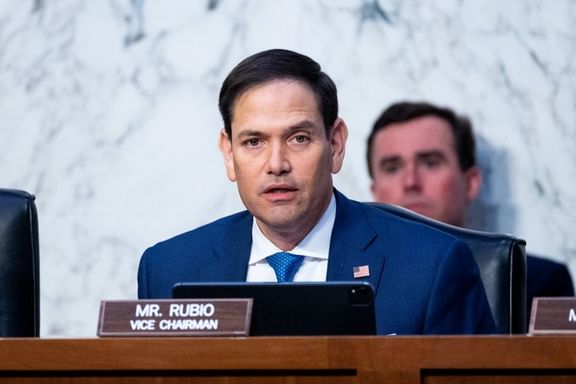
US Senate Select Committee On Intelligence is investigating why developers in Russia, China, Iran and North Korea had access to Facebook user data.

US Senate Select Committee On Intelligence is investigating why developers in Russia, China, Iran and North Korea had access to Facebook user data.
Senators Mark Warner and Marco Rubio, chair and vice chair of Committee on Intelligence, wrote to Facebook parent Meta Platforms META.O on Monday about documents that show it knew developers in China and Russia and Iran had access to user data that they could use for espionage.
"It appears from these documents that Facebook has known, since at least September 2018, that hundreds of thousands of developers in countries Facebook characterized as 'high-risk,' including the People’s Republic of China, had access to significant amounts of sensitive user data," Warner, a Democrat, and Republican Rubio wrote in the letter to company founder Mark Zuckerberg.
The letter said an internal Meta document showed that nearly 90,000 developers in China had been given access to information about users, including profile data, photos and private messages even though Facebook had never been able to operate in China.
More than 42,000 developers in Russia and thousands in Iran and North Korea also had access to the information, they wrote.
The unsealed documents came to light as part of litigation in the Northern District of California that was filed in 2018.
"We have grave concerns about the extent to which this access could have enabled foreign intelligence service activity, ranging from foreign malign influence to targeting and counter-intelligence," the two senators wrote.
Facebook did not immediately respond to a Reuter’s request for comment.
Reporting by Reuters
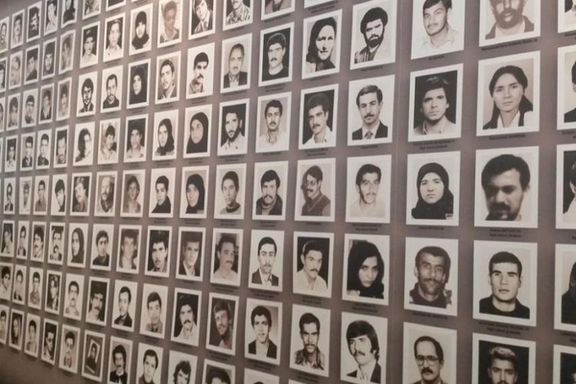
Relatives of political prisoners executed in Iran in 1988 insist that Oberlin College must expel a former Iranian UN envoy who covered up the mass killings.
A statement released by “relatives of the victims of Iran's 1988 prison massacres, members of the Iranian-American community, Oberlin College students and alumni, and concerned citizens of Ohio” on February 6 demanded that Mr. Mohammad Jafar Mahallati be removed from his post immediately for his role as an accomplice in the 1988 prison massacre.
Mahallati, a former ambassador to the United Nations and current professor of religion at Oberlin College, maintains that he was unaware of the executions despite Amnesty International’s numerous urgent notices to Iran calling for an end to the killings which were widely reported by the media. Protests were held at the time and even an Iranian, Mehradad Imen resorted to self-immolation outside the UN headquarters in September 1988 to draw attention to the wave of executions.
“I was in New York the entire summer of 1988, focusing on peace-making between Iran and Iraq, and I did not receive any briefing regarding executions,” Mahallati wrote in a statement to Oberlin Review in October 2021.
Amnesty International in a new report has named Mahallati as one of the key officials involved in covering up the killings and said that as ambassador, he repeatedly dismissed detailed reports about mass executions in 1988 and 1989, described them as “false claims and fake evidence by terrorist groups”, mispresented the executions as “battlefield killings”, and submitted films and other documents to the UN to support the false claims on behalf of the Iranian government.
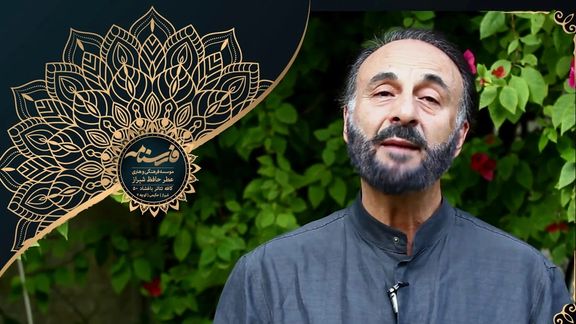
The executions were carried out based on a fatwa by Iran's then-supreme leader, Ruhollah Khomeini, against the MEK which carried out a wave of bombings in Iran and struck an alliance with Saddam Hussein during the 1980-88 war. “Showing mercy to those who take up arms against the Islamic government is being naïve,” Khomeini said in his fatwa.
Most of victims were linked to the MEK but there were also others with links to leftist and secular groups such as Fadaiyan Khalq Organization (FKO) and Tudeh Party as well as some Kurdish groups, such as Komala and Kurdish Democratic Party of Iran.
The exact number of prisoners executed during the purge of prisoners is not known but according to Amnesty International, the Iranian authorities "forcibly disappeared" and "extrajudicially executed" around 5,000 between July and September 1988.
The group of relatives started a campaign in 2020 against Mahallati and since then have three times held rallies at Oberlin College and protests in San Francisco, Los Angles, London, Berlin to pressure Oberlin College to terminate Mahallati's employment.
“Given his position as ambassador, media reports, and Amnesty’s campaign, it is impossible that Mahallati was unaware of these events unless he lived in a cave, which would otherwise demonstrate gross negligence of his duty as an ambassador,” the statement said.
The group has also accused Mahallati of making anti-Semitic and anti-Baha’i. comments in the 1980s.
“We also condemn the college for continually defending a known human rights abuser and failing to meet with the victims' families, look at their evidence and listen to their stories,” the statement said.
Oberlin college initiated its own process in 2021 to determine the validity of accusations against Mahallati including allegations of antisemitism. The college said it “could find no evidence to corroborate the allegations against Professor Mahallati, including that he had specific knowledge of the murders taking place in Iran” and allowed Mahallati to continue teaching.
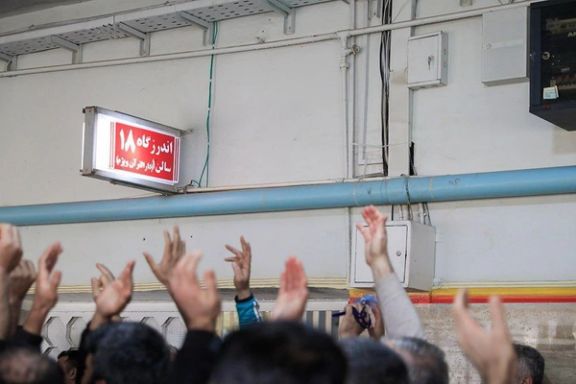
Iranian human rights organizations, activists and defense lawyers have slammed a partial prisoner amnesty for protesters announced by the country’s ruler Ali Khamenei.
Iran Human Rights group in a tweet immediately on Sunday announced that the amnesty claim is a “deceitful” step by Khamenei, demanding that all protesters should be freed “unconditionally”, and instead those responsible for repression should be tried in courts.
Protesters were exercising their right to peacefully demonstrate and arresting them had no legal bases, Iran Human Rights said.
Government media reported Sunday that Khamenei had “agreed” with a proposal by the country’s Judiciary to free those who were “misled” and took part in protests.
It is still not clear how many or which prisoners will be pardoned and whose sentences will be reduced. While thousands of young and teenage protesters were arrested in street demonstrations, hundreds of political activists, journalists and writers or artists have also been detained.
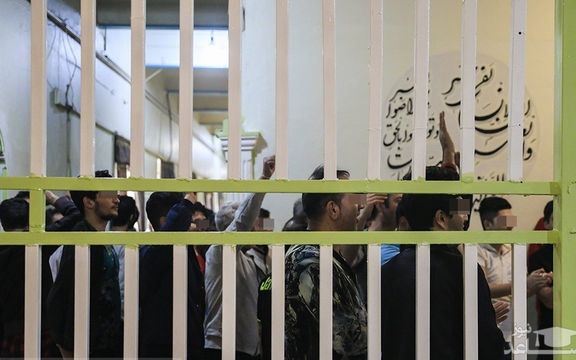
Khamenei’s move came days before the 44th anniversary of the Islamic Republic, as a move to rescue the regime’s image amid a grim economic crisis and mass public rejection of the political system he presides over.
The hardliner judiciary has attached so many pre-conditions for any prisoner pardon, that no one knows how many will be freed, while some state media claimed “tens of thousands” will be released.
Some of the conditions for being pardoned were mentioned in the announcement, including no record of spying for a foreign country, no connection with foreign intelligence services, not facing a charge of murder and no accusation of destroying public property. The regime’s security forces and courts, meanwhile, have held thousands of detainees exactly based on these sorts of charges.
A lawyer defending several detained protesters tweeted that Khamenei’s move was nothing more than “imposing the fake version of reality by the regime,” which attempts to switch the guilt from itself to the victims.
Almost all court proceedings have been held behind closed doors, after many detainees were tortured to confess to trumped-up charges. Also, in most cases defendants were not allowed to have their lawyers in the court or even have access to case files.
A former political prisoner Hossein Qashqai tweeted, “It is us who should issue pardons, not you, who carry the blood of our dearest and best children on your hands. We will never forget and forgive.”
Prison interrogators often demand that detainees to sign self-incriminating apologies and pledge not to engage in antigovernment activities. Shahriar Shams, a former prisoner, quoted one his friends who is still behind bars that if the authorities free them unconditionally, it would be fine, but if they demand any letter of remorse “we will not give them anything. We should be the ones to pardon them.”
A Dutch member of the European Parliament tweeted Monday that “Freedom shouldn’t depend on a dictator’s whims. This is hypocrisy and we won’t be fooled.”
European countries have exhibited tough reactions, compared to the past, to Islamic Republic’s bloody suppression and the hanging of four protesters after sham trials. The European Parliament last month passed a resolution demanding Iran’s Revolutionary Guard to be listed as a terrorist organization by the European Union.
Some Iranian conservative supporters of Khamenei have been surprised by the international backlash and admit that the regime is now more isolated. But Khamenei seems to be determined to make no real concession. In one of his recent speeches he said, “In the old days when wounds did not heal, they cauterized them.”

Amid various reports about the dire situation of some foreigners held in Iran, a French prisoner’s sister and his lawyer say that he has again gone on a hunger strike.
This is the second time that Benjamin Brière refuses to eat since his incarceration in May 2020.
Brière’s sister Blandine Brier said Monday that her brother “had no other choice.”
He stopped eating on January 28, his sister noted in a statement, saying "It's the only weapon he has."
The 37-year-old is being held on espionage charges. Philippe Valent, Brière's France-based lawyer, called the espionage charges against his client a "fiction" and his trial "a parody staged by the Revolutionary Guard".
Valent went on to say that Brière is worn out by months of captivity in a "gloomy" prison known to be a center for the extrajudicial elimination of opponents of the Tehran regime.
Sentenced to eight years behind bars, Brière is one of seven French and more than two dozen foreign nationals who campaigners say Iran has held hostage to get concessions from the West.
In the past decade, Iran's Revolutionary Guard have arrested dozens of dual nationals and foreigners, mostly on unproven allegations of espionage and breach of security, in what human rights organizations have said is essentially hostage taking.
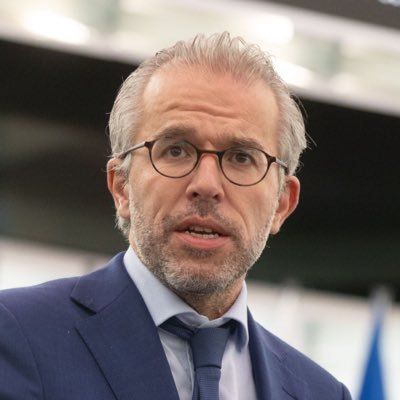
A member of the European parliament and representative of the Dutch Labor Party has lashed out at Iranian Supreme Leader’s pardon for detained protesters saying he cannot fool the public.
Thijs Reuten said in a tweet Monday that “freedom should not depend on the whims of a dictator. This is hypocrisy and we will not be fooled.”
He further called on the dictatorial ruler of Iran to release all protesters and stop executions immediately.
Reuten also addressed the European Union, urging them to sanction Ali Khamenei and President Ebrahim Raisi and blacklist the Revolutionary Guard as a terrorist group.
He also demanded the EU to show support for Iran’s democratic opposition.
Ali Khamenei on Sunday agreed to pardon some prisoners and reduce sentences for those arrested during antigovernment protests in recent months.
The proposal was made by the country’s Judiciary to take what appears to be a political step to show clemency after hundreds were killed and around 19,000 arrested.
It is not clear how many or which prisoners will be pardoned and whose sentences will be reduced. While thousands of young and teenage protesters were arrested in street demonstrations, hundreds of political activists, journalists and writers or artists have also been detained.
Khamenei's move comes at the 44th anniversary of the Islamic Republic, as a move to rescue the image of the regime amid a grim economic crisis and mass public rejection of the political system he presides over.
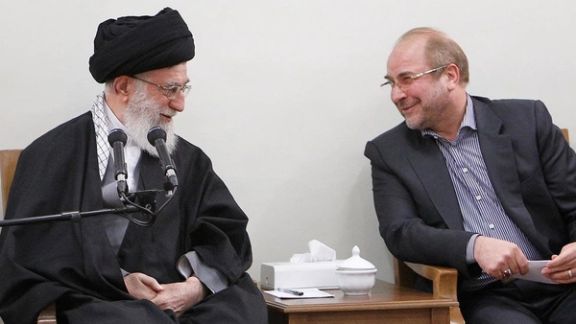
While Iranians, both officials and ordinary people, are deeply concerned over the regime’s plan to liquidate public assets, the parliament has come to support the move.
During a session on Monday, Parliament Speaker Mohammad Bagher Ghalibaf (Qalibaf) defended the plan that is criticized by many lawmakers who oppose granting immunity to the seven-man team responsible for its implementation.
The Government decided to sell public properties in November 2022 to raise money amid financial crisis and a large budget deficit. Similar past schemes implemented without proper rules and transparency have ended in scandals.
According to reports, the new privatization plan -- approved by the heads of the three powers of the government, President Ebrahim Raisi, Judiciary Chief Gholamhossein Mohseni Ejei and Ghalibaf -- bars critics of disclosing details of transactions and suspends for two years all legislation that might prevent these transactions.
The transactions are going to take place under the supervision of a seven-man team, comprised of Vice President Mohammad Mokhber, Economy Minister Ehsan Khandouzi, Interior Minister Ahmad Vahidi, Roads Minister Mehrdad Bazrpash, Planning and Budget Chief Massoud Mirkazemi, Parliament Speaker’s representative Pejman Pashmchizadeh and a representative to be appointed by the Judiciary Chief. The members of the taskforce are said to have absolute judicial immunity.
Making a paradoxical remark, Ghalibaf said "Immunity does not mean that the members on this board can commit crimes,” and added that “there will definitely be supervision on this board."
The team is headed by Mokhber, who practically runs the administration and is closely linked with the office of the country’s ruler Ali Khamenei. Since the plan does not specify any supervision mechanism and grants legal immunity, it is not clear who will supervise Mokhber.
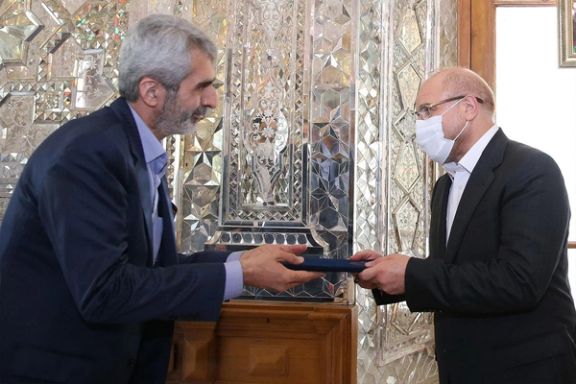
Without elaborating on his role in the ratification of the measure, Ghalibaf assigned Pashmchizadeh as his representative on the board on Monday. Early in January, Pashmchizadeh did not manage to garner the needed votes for the Supreme Audit Court of Iran.
Former lawmaker Mohammad Khoshchehreh, an economics professor at Tehran University, criticized the immunity, saying that “influential people can lead the board astray."
Denouncing the plan, Iranian investigative journalist and historian Hossein Dehbashi quipped that the plan can be described as “the distribution of the spoils” of war.
On Sunday, hardliner politician Ahmad Tavakkoli rebuked the plan to liquidate public assets with no supervision or a clear process in a letter addressed to the heads of the three government branches. Himself a regime insider and a member of the Expediency Discernment Council, Tavakkoli noted that the measure is in obvious violation of the country’s constitution. He argued that this manner of running the government is similar to the behavior of a drug addict who cannot afford to buy his drugs and decides to sell off its belongings to support his addiction.
"At the beginning of the addiction, the addict spends his income on buying drugs, but after the income is not enough, he starts selling his properties and furniture,” Tavakokoli did not mince his words.
Many former officials and the media have expressed deep concerns over the plan. Mohammad Reza Salehi, a logistics chief of former President Hassan Rouhani’s office, in a speech at a meeting of former officials earlier this month argued that the so-called privatization would give rise to massive corruption, degenerate the regime from within and eventually cause its collapse.
Reza Gheibi, an economic journalist, told Iran International that the liquidation of assets would not help the government to overcome the economic crisis it is grappling with. “In the best-case scenario, it may balance some of the budget deficit,” he said, adding that transferring these assets to individuals and entities connected with Khamenei’s office, who would be the likely beneficiaries, would give them control over the economy.
In a tweet last Wednesday (February 1), Iran's exiled prince, Reza Pahlavi, accused Khamenei of plundering the country’s national wealth “greedily” with the so-called privatization plan. “Plunderers should be aware that legal immunity will not help them, and the plundered assets of the Iranian nation should [one day] be restored to the treasury of the nation,” he wrote.
The shady privatization plan, which is promulgated to improve generation of wealth and production in Iran, has been met with a lot of skepticism by the public, who have seen corrupt “privatization” in the past 15 years, when state properties were sold at ridiculously low prices to well-connected individuals.
The clerical regime – struggling with domestic unrest and grappling with rising inflation on the backdrop of global isolation – is in desperate need of money. People are terrified that the plan is the Islamic Republic’s last-ditch effort to liquidate public assets to keep itself afloat.